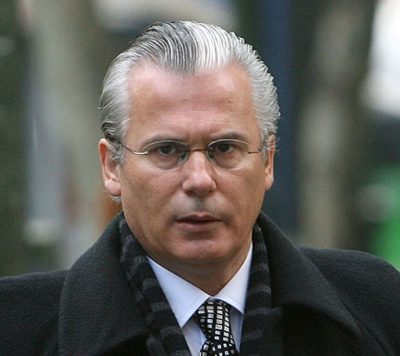Baltasar Garzon to Defend Venezuelan Businessman in Extradition Case
The high-profile Spanish lawyer accused the US of using judicial processes to “pressure Venezuela.”

The law firm of former Spanish judge Baltasar Garzon confirmed this week that it will represent a Venezuelan businessman sanctioned by the Trump administration and facing extradition from Cape Verde.
Alex Saab, 48, was arrested on the archipelago island in June while on a technical stop-over in his private jet. He was allegedly en route to the Islamic Republic of Iran to negotiate food import contracts on behalf of the government’s subsidised CLAP food program, as well as medicine and other imports needed to fight the COVID-19 pandemic.
A Colombo-Venezuelan entrepreneur of Lebanese descent, Saab was sanctioned by the US Treasury Department last year for allegedly running a “vast corruption network” profiting from overpriced contracts with the CLAP food program, which benefits an estimated six million of Venezuela’s poorest families. He also faces federal indictments in Florida, New York and Washington DC-based courts.
After receiving a US extradition request on June 29, the Cape Verde government decided to authorize it on July 14, moving Saab’s legal team to start an appeals process.
Prior to Garzon’s arrival, the defense had two habeas corpus requests denied and filed an injunction with the Barlavento Appeals Court to have the extradition request annulled.
For its part, Garzon’s Madrid-based law firm, ILOCAD, said in a statement on Tuesday that Saab’s case is an example of the White House using judicial process to “pressure Venezuela on the level of international politics.”
“Mr Saab’s rights are being violated by this extradition process,” the statement went on to say, with ILOCAD pledging to take the case to the African Union and the United Nations.
Garzon made his name in 1998 when he attempted to extradite former Chilean military dictator Augusto Pinochet to face justice in Spanish courts. He is currently coordinating Wikileaks founder Julian Assange’s defense against extradition from the UK to the US.
Following the first financial sanctions in August 2017, the US Treasury Department has moved to target strategic sectors of the Venezuelan economy, including banking, shipping, and especially oil. Washington has likewise imposed sanctions against companies allegedly involved in food imports for the CLAP program and torpedoed oil-for-food agreements with Mexican firms.
With additional reporting by Lucas Koerner from Philadelphia.
*
Note to readers: please click the share buttons above or below. Forward this article to your email lists. Crosspost on your blog site, internet forums. etc.

